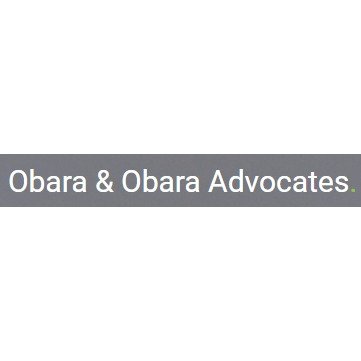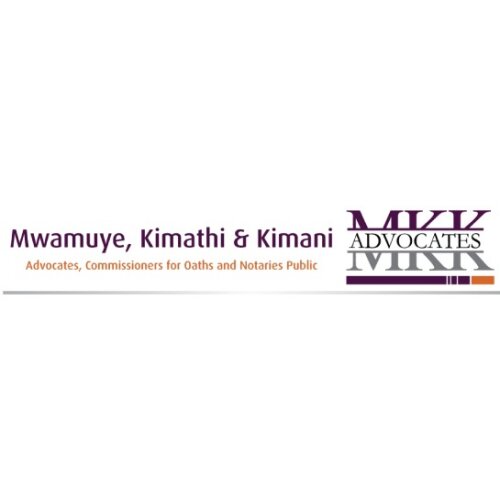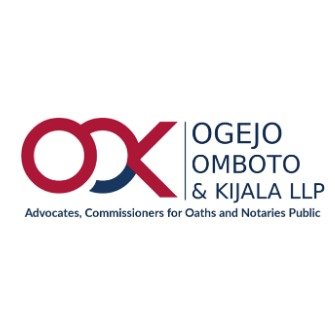Best Public-Private Partnerships (PPP) Lawyers in Kisumu
Share your needs with us, get contacted by law firms.
Free. Takes 2 min.
List of the best lawyers in Kisumu, Kenya
About Public-Private Partnerships (PPP) Law in Kisumu, Kenya
Public-Private Partnerships (PPPs) in Kisumu, Kenya, are cooperative arrangements between public sector agencies - such as county governments or national authorities - and private sector entities. The aim is to finance, build, and operate projects that provide public services or infrastructure, including roads, water supply, healthcare, markets, and energy. Kisumu, being an urban and economic hub, leverages PPPs to accelerate development, address resource limitations, and improve service delivery for its growing population.
PPPs are guided by national legislation but often require customization to address local Kisumu county needs. Given the complex structure of PPPs, legal oversight is crucial, particularly regarding contract drafting, risk allocation, compliance, dispute resolution, and ensuring public accountability.
Why You May Need a Lawyer
Engaging in a PPP in Kisumu, Kenya, involves multiple legal, regulatory, and operational considerations. Here are some common situations where legal help is essential:
- Project Structuring: Lawyers help in determining which PPP model is best for your project, such as Build-Operate-Transfer or Design-Build-Operate models.
- Contract Negotiation and Drafting: PPP contracts are highly detailed and technical. Legal professionals draft and review agreements to safeguard your interests.
- Regulatory Compliance: You must comply with both county and national PPP laws and policies, including approval procedures and public procurement standards.
- Risk Assessment: PPPs involve complex risks, including financial, legal, environmental, and operational aspects. Lawyers help with risk allocation and mitigation.
- Obtaining Licenses and Approvals: Securing the required consents and clearances from relevant Kisumu and national authorities often requires a lawyer’s guidance.
- Dispute Resolution: Conflicts may arise during project execution. Legal experts provide dispute resolution and representation in negotiations or litigation.
- Land Acquisition and Environmental Matters: PPP projects may involve land acquisition or environmental assessments, both of which have legal and regulatory requirements.
- Confidentiality and Intellectual Property: Safeguarding proprietary technology or sensitive project information frequently needs legal expertise.
Local Laws Overview
PPP activities in Kisumu are primarily governed by national laws, including the Public Private Partnerships Act 2013 (amended in 2021), as well as county by-laws and sector-specific regulations.
Key aspects of the local laws relevant to PPPs in Kisumu include:
- PPP Approval Process: All PPPs must be approved by the relevant PPP Committee at both county and national levels, ensuring the project meets infrastructure development goals and public interest standards.
- Procurement Procedures: Competitive bidding is required for private sector partners, ensuring transparency and fair competition.
- Risk Sharing: The law mandates an equitable distribution of risks between public and private partners, with clear contractual terms.
- Public Participation: Projects must include consultation with the local community to ensure social and environmental impacts are considered.
- Land Use and Acquisition: County government regulations apply for land matters, including leasing, transfer, compensation, and resettlement procedures if necessary.
- Revenue Sharing: Agreements must specify how revenue generated from PPP projects will be shared between partners and reinvested in the community.
- Contract Management and Monitoring: County authorities have the mandate to supervise implementation, performance standards, and compliance throughout the agreement term.
- Dispute Resolution Mechanisms: The law encourages alternative dispute resolution (ADR), including mediation and arbitration, before resorting to courts.
Frequently Asked Questions
What is a Public-Private Partnership (PPP)?
A PPP is a collaborative arrangement between a government entity and a private sector company to deliver a public service or infrastructure. Each party shares roles, responsibilities, and risks according to the project agreement.
Who can initiate a PPP in Kisumu?
Both public sector agencies (such as county departments) and private companies can initiate PPP proposals, subject to proper evaluation and approval by the authorized committees.
Are PPPs the same as privatization?
No. PPPs involve cooperation between public and private sectors, but the public entity usually retains ownership or significant control, unlike privatization, where assets are sold entirely to private entities.
How long does it take to set up a PPP in Kisumu?
The process can take several months or even years, depending on project complexity, approvals required, and negotiations between partners.
What types of projects qualify for PPPs in Kisumu?
Common sectors include infrastructure (roads, bridges, ports), water and sanitation, health, energy, education, and market developments.
Can foreign companies participate in Kisumu PPPs?
Yes, foreign companies can partner in Kisumu PPPs, subject to compliance with local content laws and public procurement regulations.
What are the risks involved in PPPs?
Potential risks include political, financial, construction, regulatory, operational, and environmental risks. Proper legal due diligence helps identify and allocate risks effectively.
How are disputes in PPPs resolved?
Most PPP agreements stipulate the use of alternative dispute resolution (ADR) methods, such as mediation and arbitration, before involving courts.
Does the community have a say in PPP projects?
Yes, public participation is essential. The local community is consulted to ensure their needs and concerns are incorporated into the project planning.
What should I do before signing a PPP agreement?
Consult a lawyer experienced in PPP matters. Ensure all legal, financial, and regulatory aspects are reviewed, and understand your obligations and rights under the agreement.
Additional Resources
If you are seeking more information or assistance on PPP matters in Kisumu, the following entities can be of help:
- Kisumu County Government: The Department of Trade, Industrialization, and Enterprise Development handles PPP projects at the county level.
- Public Private Partnerships Directorate (National Treasury): The national body provides overall policy guidance, technical support, and approval for PPPs.
- Kenya Investment Authority (KENINVEST): Offers support for investors, including those exploring PPP opportunities.
- Kenya Law: The official source to access legislation and regulations relating to PPPs.
- Law Society of Kenya (LSK), Kisumu Chapter: Recognized platform for finding qualified legal professionals with PPP experience.
Next Steps
If you are considering initiating or entering into a PPP project in Kisumu, Kenya, follow these steps:
- Gather preliminary information about your proposed project’s scope, partners, and objectives.
- Consult with the relevant department in Kisumu County or the Public Private Partnerships Directorate for guidance on procedures and requirements.
- Engage a licensed lawyer with expertise in PPPs to help with contract negotiation, compliance, and all legal documentation.
- Participate in community consultations as required by law to ensure local buy-in and support.
- Ensure full compliance with all relevant legal and regulatory frameworks before finalizing any agreements or commencing the project.
- If in doubt, seek a second legal opinion or contact the Law Society of Kenya for further guidance.
Taking these steps will help ensure your PPP venture in Kisumu is legally sound, transparent, and has greater chances of success.
Lawzana helps you find the best lawyers and law firms in Kisumu through a curated and pre-screened list of qualified legal professionals. Our platform offers rankings and detailed profiles of attorneys and law firms, allowing you to compare based on practice areas, including Public-Private Partnerships (PPP), experience, and client feedback.
Each profile includes a description of the firm's areas of practice, client reviews, team members and partners, year of establishment, spoken languages, office locations, contact information, social media presence, and any published articles or resources. Most firms on our platform speak English and are experienced in both local and international legal matters.
Get a quote from top-rated law firms in Kisumu, Kenya — quickly, securely, and without unnecessary hassle.
Disclaimer:
The information provided on this page is for general informational purposes only and does not constitute legal advice. While we strive to ensure the accuracy and relevance of the content, legal information may change over time, and interpretations of the law can vary. You should always consult with a qualified legal professional for advice specific to your situation.
We disclaim all liability for actions taken or not taken based on the content of this page. If you believe any information is incorrect or outdated, please contact us, and we will review and update it where appropriate.














